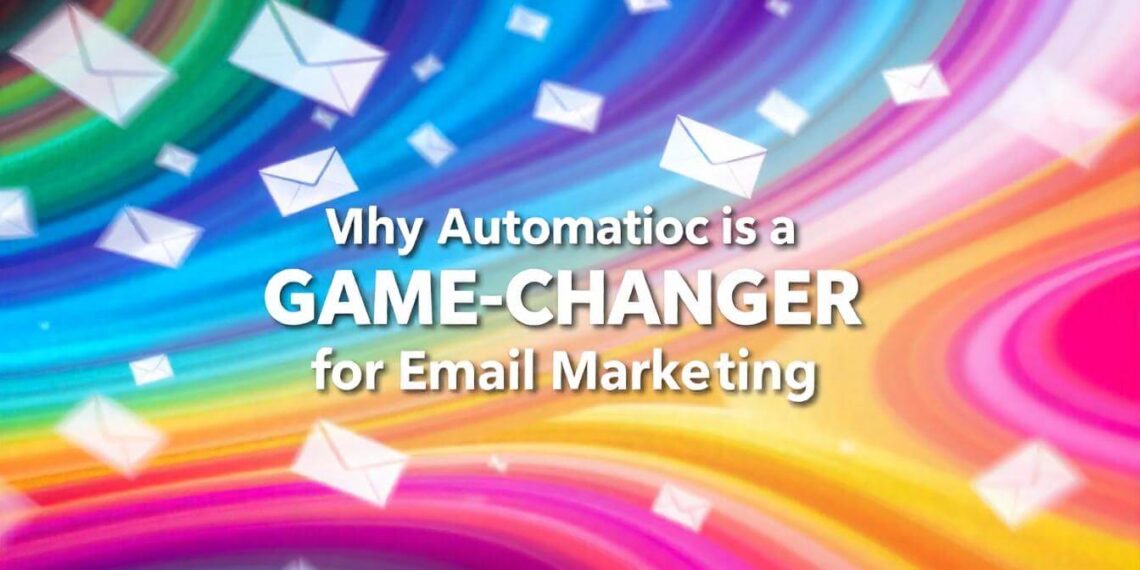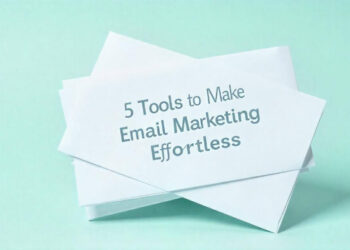Email marketing is still a powerful medium, especially when utilizing automation to generate greater efficiency, personalization and more importantly – engagement within the very early stages when an intent is expressed. It’s not just about sending a generic email to a list of recipients any more. Automation helps send personalized, timely, and relevant content at scale to businesses’ subscribers. So why is automation a game changer for email marketing? Let’s dive into the reasons.
1. Better Campaigning via Streamlined Efficiency
By automating email marketing your business saves time and effort making campaigns as easy as a few clicks. Marketers can automate the process of creating and sending each email one by one for instance, by setting up automated workflows to send out emails when certain actions are performed by the subscribers. It simply means you could set your entire workflow in place and set emails automatic once it’s done.
For example, when a new subscriber joins your mailing list you can immediately send out an automated welcome email. No matter if you want follow up emails with special offers / relevant content or just to be able to schedule follow up emails at a later date, you don’t have to be sat at your desk all day long watching. Automation becomes a time saver which allows marketers to save up for strategy, optimization, as they don’t have to waste their time with manual tasking.
2. Personalization at Scale
Personalising messages to a big audience is one of the biggest challenges in email marketing. By email automation, you can solve this problem by sending your subscribers email content based on what they do, what they prefer, and how they interact with your brand previously. Automation allows for a great amount of personalization at scale: Whether it’s sending a special discount to a repeat customer or a personalized product recommendation to a subscriber based on their browsing history.
Automated email systems allows businesses to send highly relevant content using segmentation and triggers to individual subscribers. Such fosters better customer experience, has a higher trust build up and in reality leads to higher engagement rates. A personal email is more likely opened and acted upon — it drives that conversion and loyalty.
3. Better Customer Journey Management
It is important to manage the customer journey in email marketing. The automation that allows subscribers to be guided through this journey is very important: from initial interest to conversion, and even post purchase follow ups. Years ago, email automation was reserved for marketing emails that nurture leads, educate them, and ultimately ask them to purchase or perform a desired action.
Say, you automatically run a series of emails, for example, a welcome series, followed by educational content, product recommendations, and special offers. This lets the subscriber build a relationship with you slowly but steadily down the sales funnel without you having to work your fingers to the bone.
By mapping out and automating the customer journey, companies can deliver the right message at the best time to enjoy higher conversion rates, as subscribers engage better.
4. It includes Enhanced Analytics and Reporting
Traditionally email marketing can be a frustrating game to track performance and measure how every single email resonates with subscribers. However, review of key metrics such as open rates, click through rates, conversion rates, etc. is available through in detail analysis and reporting features of the many available email marketing automation platforms. These insights are indispensable to understand what is working and where are holes to be closed.
Moreover, automation platforms enable you to easily run A/B tests and optimize campaigns on real time performance data. From this analysis, marketers can craft their strategy, change subject lines, subject formats, and make data driven decisions that leads to their overall email marketing campaigns becoming much more effective.
5. Sacrificing nothing on Quality in the pursuit of scalability
The more email addresses you have, the more difficult the task of sending personalized emails with deadlines. It is where automation dazzles. This allows businesses to send email marketing without compromising on the quality of the sent messages, as emails get scaled.
Let’s say you were to send out an email to 100 subscribers or 10,000 – the automation system will deliver to each subscriber the right message at the right time. It also ensures that email remains consistent, personalized, and error free, even as email volume rises. Using the ability to set up Triggers, segments and workflows, businesses can run large scale email campaigns in a simple and efficient manner.
6. Increased ROI and reduced costs
Email marketing can easily become resource intensive when it is being done manually, particularly when your team is tasked with sending and creating emails for a vast number of subscribers. But by automating this, businesses can drastically reduce labor cost and increase efficiency. Not only does automation help improved targeting and personalization that results in better engagement and higher conversion rates on email marketing campaigns, but it also ends up improving ROI (return on investment) for an average email marketing campaign.
Apart from that, automation reduces the probability of human error resulting in emails are sent on time and without errors. It keeps your brand looking consistent and stops the expense related to sending the wrong email to the wrong audience.
7. Improved Segmentation and Targeting
It’s important to segment your email marketing, but manually segmenting your email list can be a big time suck. This allows you to segment your list by far more factors, a lot easier because it is automated. Automated workflows allow you to send specific messages to specific segments of subscribers, so you know that each group of subscribers gets the messaging most relevant to that group.
Imagine an e-commerce business sending a different email to a subscriber for who abandoned their cart versus someone who has previously bought a product. The points of segmentation are this far apart that your emails are highly targeted and the chances of engagement and conversion are higher.
8. Improved Customer Retention
Acquiring customers is no easy task — it’s equally important to keep your customers engaged after their first purchase. Email automation improves customer retention by sending these timely follow up emails like product update, loyalty program offers & post purchase surveys. And these messages are automated, so they remind your brand and encourage your repeat business.
An example would be a thank you email combined with a special purchase offer in the future. Moreover, re-engagement campaigns run on an automated basis targeting their dormant customers with personalized offers to remind them of why your brand is valuable.
9. Other marketing channels seamless integration
It won’t be a surprise if I tell you that email marketing automation isn’t something that happens in a vacuum. And it can easily knit into other marketing channels, like social media, content marketing, and paid advertising. This allows the business to plan unified and cohesive marketing strategies across the multiple touchpoints.
To take a specific example, automated email campaigns can get triggered when a subscriber interacts with your social media ads or your website content. Similarly, email marketing can push traffic to your social media accounts, or get traffic to your site to tout your blog content, working collectively to reinform the reach and affect of your advertising.
Conclusion
Email marketing is no doubt a game changer for automation. It saves time, makes the ads more efficient, as well as allowing businesses to scale their campaigns without clogging them out with a bunch of unsubstantiated ads. This enables businesses to improve customer engagement, achieve higher ROI and improve the total customer experience by automating workflows for email.
With email marketing automation, marketers can stop worrying about repetitive tasks and devote more time to strategy, and creative content. With technology advancing, the use of automation in email marketing will grow even more, which makes email marketing automation a must have for businesses that want to stay afloat in the digital spectrum.






